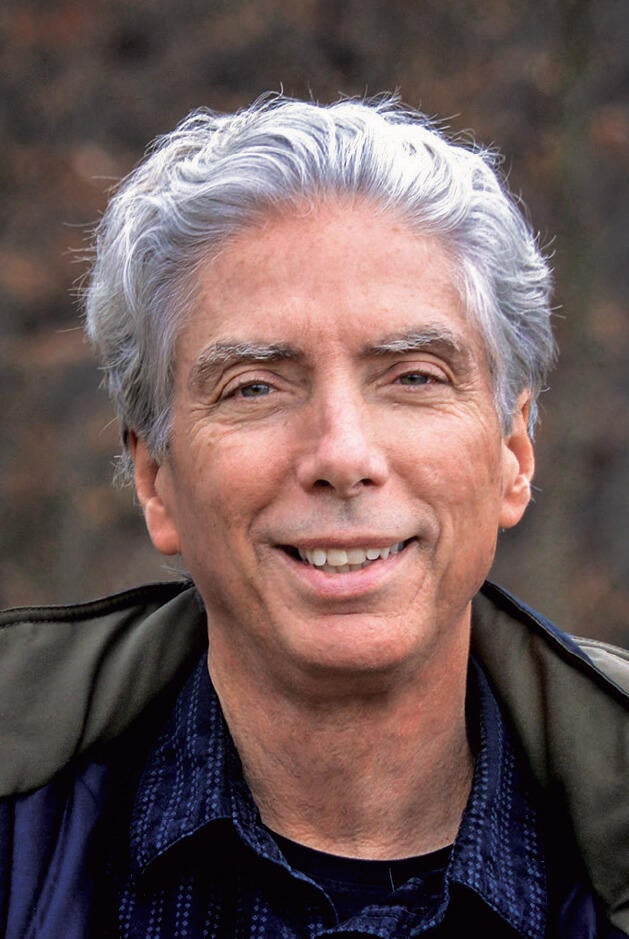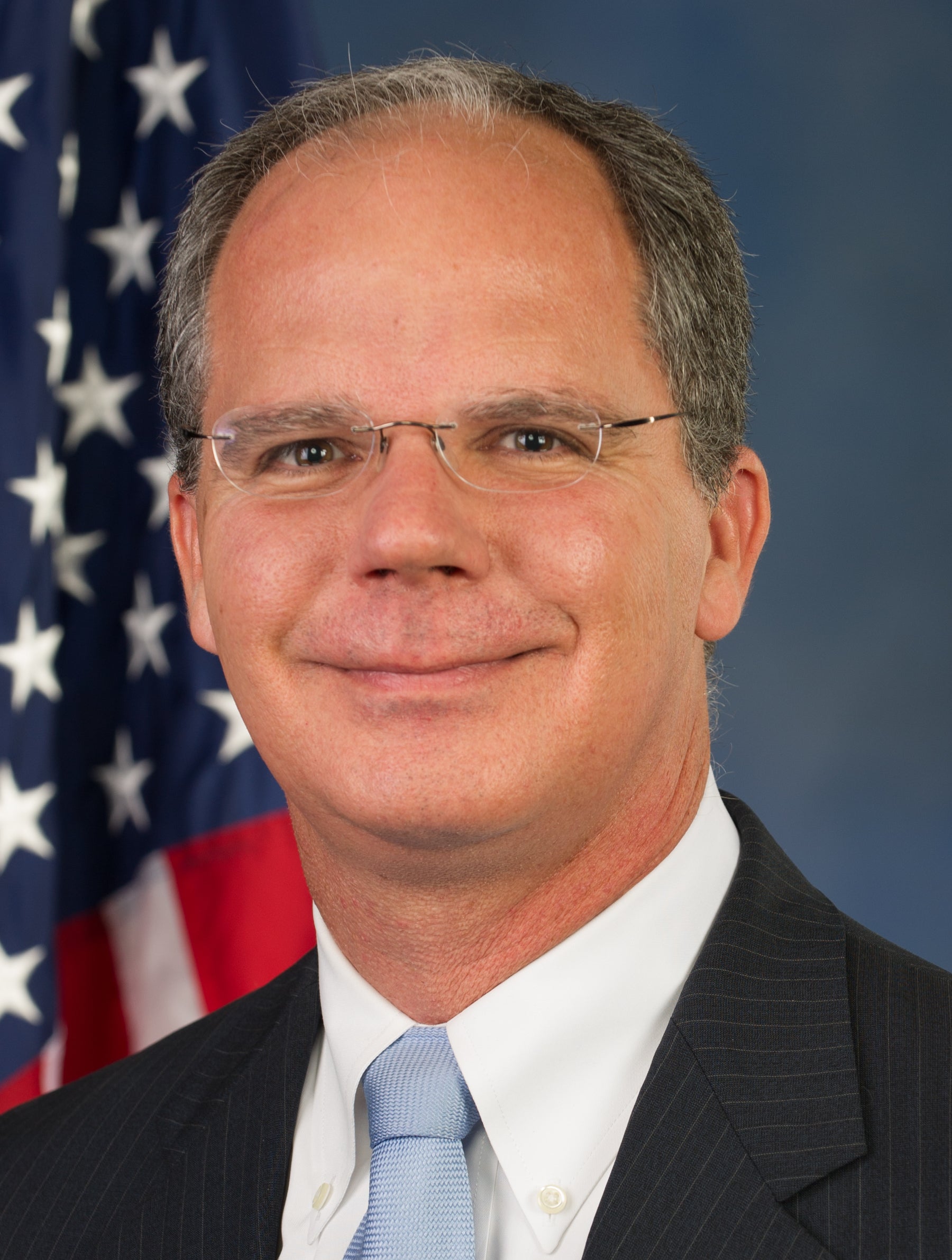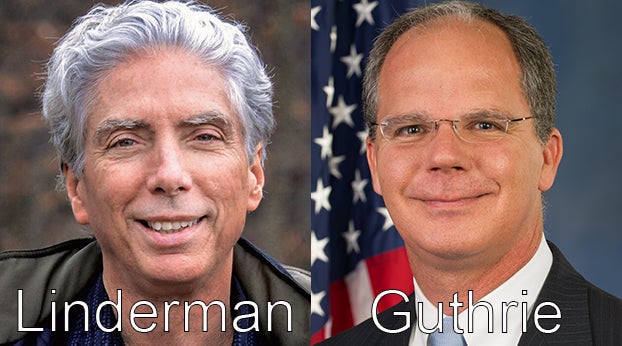The race for U.S. House of Representatives – Q&A with Brett Guthrie (R) and Hank Linderman (D)
Published 4:15 pm Wednesday, October 14, 2020
Rep. Brett Guthrie (R) and Hank Linderman (D) are candidates for the U.S. House of Representatives in Kentucky’s 2nd district. The Advocate-Messenger asked them a series of questions leading up to the general election. Guthrie has been the incumbent in the district since 2009. He gave his answers over email, and Linderman provided his answers over Zoom and, when explaining his stance on issues, Linderman referred to his contract for rural and working America, which can be found on his website. Guthrie and Linderman’s responses have been edited for clarity and brevity. The deadline to register to vote and the deadline to request an absentee ballot have passed, but you can visit govoteky.com to find your polling location, check the status of your absentee ballot and view a sample ballot. Early voting began Tuesday, Oct. 13, and ends Nov. 2, and Election Day is Nov. 3.
Hank Linderman

What are some of the key issues at stake in this congressional race, especially in Ketucky’s 2nd district specifically, and what is your stance on these issues?
HL: Restoring health care — which is on everybody’s minds — the way that I talk about it is in terms of goals, that we need health care that’s significantly less expensive. I think we can get 40% less expensive. It needs to honestly cover everybody. We’re covering everyone now, but we’re doing a very inefficient, poor job of it. We’re doing it dishonestly, because people who don’t have health insurance — we end up paying for people who don’t have insurance. So let’s just do it more efficiently. We want it to be easier to use, meaning we don’t want you to be on the telephone with your insurance company just because someone in your family is sick, and we also want it to give us better results. We want to live longer, we want lower rates of serious disease, lower rates of infant mortality and so on. So I believe that there’s going to have to be some sort of Medicare for all. I get it that there are people who like their insurance, but I think there’s ways to either grandfather them in, that as long as they want to keep their insurance they can.
Education and child care — I think that we should have a national child care and a national preschool system.
Support for small subsistence and family farms — and we get into details on that and you can see some of that with the contract. If your farm has a CEO we’re probably not talking about you. We’re talking more about if you’ve got a family farm.
Rebuilding infrastructure and the domestic supply chain, meaning that we want to build things in America again, particularly starting with strategically important industries like microprocessors or steel or aluminum. We want to have a living wage. Working people need to make more money. We need to support workers in declining industries. We’re going to go through a lot of declining industries. I know people think of coal as a declining industry, and it has been. But one that’s coming is trucking. Trucking is one of the last places that without a university degree, you can make a good living, but as we’re seeing, Tesla and other companies — General Motors, Ford — are all preparing to have self-driving trucks. You know, the job of driving is either the number one or number two job in — that’s the number one or number two employment — in the United States, and we’re about to automate all of that. That’s going to have drastic, drastic repercussions that we better start planning for.
We need renewable energy, and coal workers are energy workers. Why not encourage coal businesses to convert to solar, to convert to wind, to convert to water power? Rural broadband we’ve talked about for a long, long time. I personally believe this needs to be a national program, meaning that the federal government needs to say “Right, we’ve decided that broadband is as important as water or power.”
I think that we need to support addicts and their families. I’m in favor of decriminalizing addiction, meaning if you’re high and you break into someone’s house, guess what? You’re going to prison. But when you’re out of prison, if you’ve served your time, and say you get pulled over for a broken taillight and they do a drug test on you and find out that you’ve been high, instead of sending you back to prison, let’s send you to rehab, and let’s also provide support for your family.
That leads to the legalization of cannabis, and states that have legalized cannabis have a much lower rate of death due to overdose. They also have a lower rate of use of painkillers, lower rate of abuse of painkillers, and like I say, less death by overdose.
And the final piece of the contract is a Secretary of Rural Affairs. We already have a Secretary of Agriculture. This is a cabinet-level position that would advise the president, and the idea is that farming is only part of rural life. Most people in rural life work as teachers or in health care or in various other government positions. They also do work in farms, but they work in factories and so on and so on. They have small businesses. So rural life to my mind needs to be paid attention to for the sake of the nation.
This is the way forward for both the Democratic and Republican party. They need to finally do right by rural America.
The other big issue that I talk about just generally is that most of these problems that we’re talking about have their roots in inequality — either social or economic and hugely both. And we have more economic inequality than we’ve had in quite some time. And social inequality, obviously, is a big factor right now. We’re in the middle of the third great moment in civil rights for African Americans, the first one being the Civil War, the second one being the attempts to increase civil rights for African Americans in the ‘60s, and this is the third great moment for the United States to get things right. So it is important. Saying that, though, I want to point out that the things that African Americans need are connected to the very same things that rural Americans need.
What do you want to do going forward to help Kentuckians through the pandemic, and what efforts can be made in the 2nd district?
HL: I think we should focus on trickle-up. We’ve been trying trickle-down since the ‘70s, and it has worked to make the very wealthy more and more and more wealthy. It was supposed to mean that as you made the wealthy and the corporations more powerful, that benefits were going to trickle down, and they did trickle down a few layers, but they didn’t make it all the way down, and the analogy that I use — all analogies are flawed — but if you only watered a tree on the leaves, that tree is going to die. You’ve got to water the roots. We’re going to have to give money to people to get through this. Look, we gave billions of dollars away to corporations in 2008. We’ve given billions and trillions of dollars away to big corporations just this year. We need to give money away to people at the bottom of the socioeconomic ladder. They will spend it. It’ll go immediately back into the economy, and it will benefit businesses that way, so that’s what I would say — focus on trickle-up.
What do you think can be done to improve policing in the 2nd district, especially in the Black community and especially as it applies to excessive or deadly force?
HL: I am told in Bowling Green by my African American friends that the police are actually pretty together in Bowling Green. I’m told in Danville that things are pretty together — you’ve actually got an African American (police) chief, who I’ve met. But I think the basic concept of policing going forward in the United States is I think we need to require a little bit more education out of police officers. I think they need to be more directly involved in their communities. Some more direct community involvement, focus on de-escalation — I think the police are far too militarized — we need to back off on the amount of force.
And we need not only the public to respect the uniform — we need officers to respect the uniform and understand their position and the importance of their position. When the police are there to protect the very wealthy, which is the feeling a lot of us get, that the reason the police are there are to protect very powerful, wealthy, corporate interests, then I think we have a problem. I don’t know how bad that is in the state of Kentucky, but my sense is across the country, we’ve got to refocus the role of the police to protecting and serving the public.
What are your goals for legislation going forward, if any?
HL: When we focus on specific policies, I think we get into trouble. I think it’s better to focus on goals. It’s better to say, “We need Americans to live longer. We need Americans to be able to afford their health care.” And once we focus on those goals, then we can fuss about policy. We figure out how to pay for things once we’ve decided what to do. I had someone look at the Contract for Rural and Working America, and he said, “Sounds expensive.” And I said, “OK, how much does the F35 cost?” And he couldn’t answer. The most expensive defense program in the history of the nation, and nobody knows what it costs, and we don’t really care. Once we’ve decided that it’s important, we’ll find a way to pay for it.
So I would be focusing more on rebalancing things between corporations and people, focusing on equality, focusing on really the big, big job, which is keeping this planet liveable for our children, our grandchildren, and that’s really, ultimately, the only issue. That’s the only issue. So that’s what I would be focusing on.
Facing the incumbent in this race since 2009, what are your advantages and disadvantages?
HL: The main advantage I have is I do not take corporate PAC money, and also we’re running a primarily volunteer campaign where our motto is “down in the dirt grass roots.” People are rather motivated to make a change. Now, Kentucky will probably be slow to change, but who knows what’s happening this year? I’ve told people who knows who’s going to get elected unless the earth opens up underneath us? Well, look where we are. The earth is opening up underneath us. I think there’s a lot of hidden fatigue with President Trump and the way that he does things, and I have told Trump supporters — any time Trump does something that actually helps working people, I’m fine with it. He just hasn’t done very much that I can think of.
I think Brett Guthrie — he serves his contributors. I will not be serving my contributors. I’ve only had one contributor ask me for something, and that was to cut my hair, so I did it, and other than that, I have a group of people that are advising me that are activists, and I’ll be relying on them to keep me connected to the ground. And by the way, I don’t think corporations are bad. I use products from corporations every day, and most of us earn our living through corporations. But we definitely need the balance. The rights of corporations have gotten out of control compared to the rights of people.
Why do you think you can do a better job than Brett Guthrie?
HL: I think simply by being dedicated to the idea that people need to be served first.
Note: Hank Linderman requested to include that he goes live on Facebook every day at 3:30 EST.
Brett Guthrie

What are some of the key issues at stake in this congressional race, especially in Kentucky’s 2nd district specifically, and what is your stance on these issues?
BG: I fight for rural America and the pro-worker, pro-family values that are often forgotten by the liberals in Washington.
I’m focused on the economy. As Congressman, I have passed major job training legislation to ensure people have the skills necessary to compete for new and better jobs. Quality education, apprenticeships and hands-on training are proven methods to help people succeed, and I will continue to fight to expand and modernize those programs.
Lowering the cost of prescription drugs and expediting cures for diseases like Alzheimer’s are also top priorities for me. We must have a health care system that works for everyone, especially the most vulnerable in our society. That means giving families and businesses the flexibility to choose a plan that meets their needs. I oppose a government takeover of health care, which is what Democrats are pushing in their platform. We need choices, affordability, and better access, not government mandates and rationing.
What do you want to do going forward to help Kentuckians through the pandemic, and what efforts can be made in the 2nd district?
BG: I am leading the Second Wave Preparedness Project to ensure winter preparedness, and I strongly support President Trump’s Operation Warp Speed to get us a vaccine as soon as possible. Regarding the economy, there are some encouraging signs, but I know people are still hurting and I am continuing to fight for relief and stimulus. Unfortunately, Nancy Pelosi and her liberal Democratic majority wanted to cram things into the latest stimulus bill that have nothing to do with COVID. I am proud that, in a bipartisan way, we created the Paycheck (Protection) Program that saved thousands of businesses and jobs. There’s more to be done, and I want to do it in a bipartisan fashion, like we did the initial packages earlier this year.
What do you think can be done to improve policing in the 2nd district, especially in the Black community and especially as it applies to excessive or deadly force?
BG: I supported the efforts of Senator Tim Scott of South Carolina, who put forward a terrific proposal that would’ve made significant reforms, respecting both the concerns of the protestors and also the multitude of good police officers that protect our communities. The fact that Senator Chuck Schumer filibustered Senator Scott’s plan was extremely disappointing, as I was looking forward to voting for Senator Scott’s bill. But the Democrats in Congress have decided that doing nothing is better than a compromise, bipartisan plan, and that is regrettable.
- What are your goals for legislation going forward, if any?
BG: My reasons for seeking public office have never changed — to leave our children and grandchildren a better world. That’s the American Dream to me — building a life and a family that strengthens and improves Kentucky. As Representative for the values and voice of the Second District, my top priorities are to ensure people have the job skills they need, fight for health care that works for everyone, and invest in our future with quality education. I am also pro-life, will support the Second Amendment, and stand up for our military heroes who provide our national defense and guard our freedoms.
Being the incumbent in this race since 2009, what are your advantages and disadvantages?
BG: Each race is unique. We don’t own these seats, and I view each campaign as a job interview. Why should the people of Kentucky re-hire me for this job? Because I vote their values. I am pro-life, pro-worker, and pro-family. I support President Trump’s agenda, which has been good for Kentucky. I stand up for the military families at Ft. Knox. I take the values and needs of our district to Washington and deliver for them. I raised my family here, built a business, and believe I have a shared experience with so many people in Kentucky who are trying to do the same thing — build a good life for themselves and their family.
Why do you think you can do a better job than Hank Linderman?
BG: He will support Nancy Pelosi and her agenda; I won’t. I have a proven track record of passing bills and voting the conservative values of the Second District, and he will support the liberal agenda of Pelosi and Sanders and AOC (Alexandria Ocasio-Cortez) and all the rest. Nothing against Hank, I am sure he’s a good guy. But Kentucky doesn’t want Nancy Pelosi’s agenda; our people want a common-sense, conservative, pro-life and pro-worker approach. That’s what I am offering.







